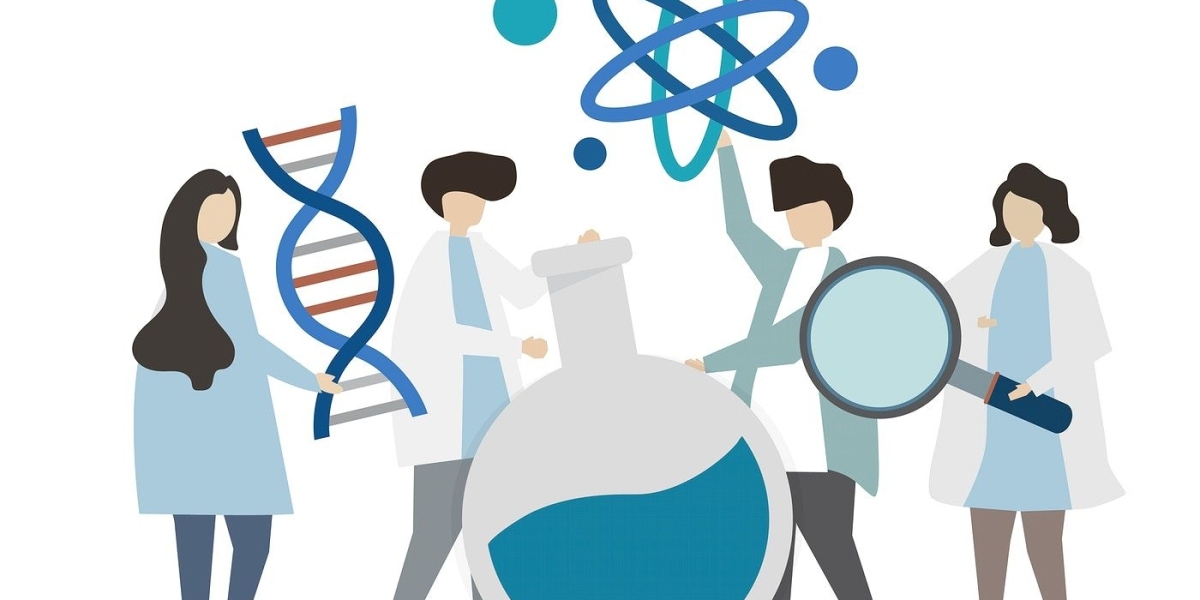The Expanding World of Human Genetics
The field of human genetics is experiencing a period of remarkable growth and transformation. Fueled by advancements in DNA sequencing technology and our ever-expanding understanding of the human genome, human genetics is playing an increasingly significant role in healthcare and research. This field delves into the intricate details of our genetic makeup, exploring how genes influence our health, disease susceptibility, and even our physical traits.
One of the most captivating trends in human genetics is the rise of Direct-to-Consumer (DTC) genetic testing. These readily available kits allow individuals to access their genetic information without going through a healthcare provider. DTC testing offers a glimpse into one's ancestry, potential health risks, and even pharmacogenomics - how genes influence drug response. While DTC testing offers valuable insights, it's crucial to understand the limitations. Interpreting genetic data requires expertise, and genetic counselors play a vital role in helping individuals understand their results and make informed decisions.
The human genetics market is reflecting this surge in interest, with estimates suggesting it will reach a staggering USD 65.18 Billion by 2032 [MRFR, Human Genetics Market Research Report Information by Application (Wellness & E-Commerce, Preventive Medicine, Diagnostic & Treatment), by Test (NIPT, Carrier Testing, Pharmacogenomic Testing, Karyotype Testing, Thrombophilia Testing, Septin 9 Biomarker Testing, NGS, Others) And By Region (North America, Europe, Asia-Pacific, And Rest Of The World) –Market Forecast Till 2032]. This growth is driven by several factors, including:
- The increasing demand for personalized medicine, which leverages genetic information to tailor treatment strategies to individual patients.
- The rising prevalence of chronic diseases with a genetic component, such as cancer and cardiovascular disease.
- The ongoing development of novel genetic technologies that are making genetic testing faster, more affordable, and more accessible.
Leading the Charge: Innovation in Human Genetics Companies
Several companies are at the forefront of developing and deploying cutting-edge human genetics technologies. Here are a few examples of recent advancements and investments:
- Myriad Genetics: Launched a new carrier screening test that analyzes over 300 genes associated with a wide range of genetic disorders, expanding their offerings in the prenatal testing space.
- Elabscience Biotechnology Inc.: Announced a collaboration with a leading research institution to develop a next-generation sequencing (NGS) platform specifically designed for non-invasive prenatal testing (NIPT), aiming to improve the accuracy and efficiency of this rapidly growing market segment.
- Atrys Health: Partnered with a major healthcare provider to offer DTC genetic testing with a focus on personalized health recommendations and ongoing genetic counseling support, addressing the need for responsible interpretation of DTC results.
These are just a few examples, and the field of human genetics is constantly evolving. Companies that embrace innovation, prioritize ethical considerations, and address the challenges of data privacy will be best positioned to thrive in this exciting market.
A Market on the Move - Key Trends Shaping the Human Genetics Landscape
The human genetics market is a dynamic and rapidly evolving space. Understanding these key trends is crucial for companies and researchers seeking to capitalize on the full potential of this field.
- The Rise of Direct-to-Consumer (DTC) Genetic Testing: As mentioned earlier, DTC testing is transforming how individuals access their genetic information. This trend presents both opportunities and challenges for the human genetics market share.
- Focus on Personalized Medicine: The integration of human genetics into clinical practice is paving the way for personalized medicine. By understanding an individual's genetic makeup, healthcare providers can tailor diagnostic tests, treatment plans, and preventive measures for optimal health outcomes.
- Advancements in Gene Editing Technology: Technologies like CRISPR-Cas9 are revolutionizing our ability to modify genes. While the ethical considerations of gene editing are extensive, this technology holds immense potential for treating genetic diseases.
- Growing Demand for Non-invasive Prenatal Testing (NIPT): NIPT allows for the assessment of fetal genetic abnormalities through a simple blood test from the mother. This minimally invasive approach is gaining popularity and is expected to contribute significantly to the human genetics market growth.
- Increasing Focus on Data Security and Privacy: As the volume of human genetic data explodes, concerns regarding data security and privacy are paramount. Robust regulations and ethical frameworks are crucial to ensure the responsible use of genetic information.
By staying abreast of these trends and addressing the associated challenges, the human genetics market can continue to expand and unlock the vast potential of this field for advancing human health and well-being.
For more information visit at MarketResearchFuture
Other Trending Reports









